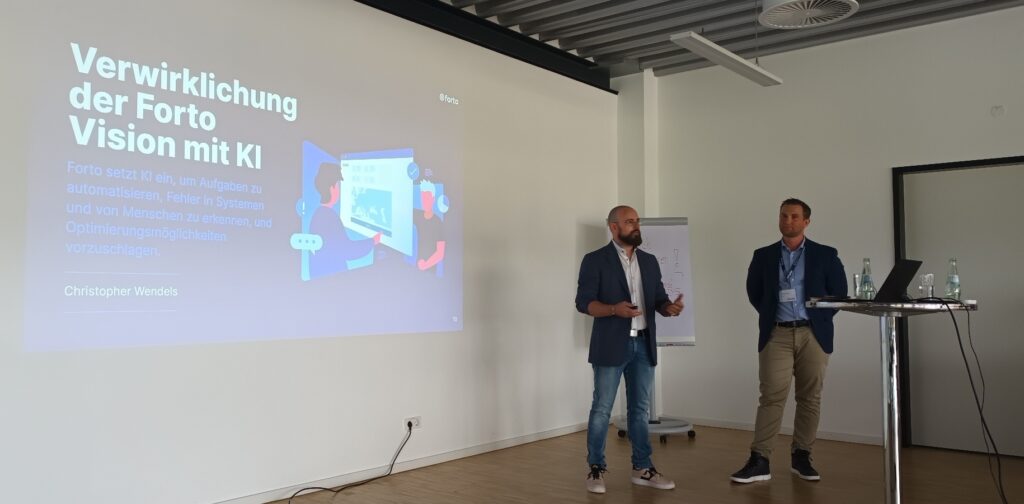How the right communication process and data management style augment shipment handling and reduce risk.
In international shipment management unnecessary workload changes and failure to communicate efficiently and effectively lead to errors and delays in shipment processing.
Multiple stakeholders, dozens of calls, variations of documents, process steps, and diverse transport management systems (TMS) complicate international shipping even further.
Regardless of what factors occur, shippers, consumers expect smooth handling of goods. The complexity of global logistics and volatility of trade more and more encourages the use of an experienced and digital freight forwarder. The right shipping partner can ensure ordered products arrive on time and in full. However, the success hinges on effective communication.
The Problem: Inefficient Communications Within Freight Forwarding Processes Lead to Rolled Over Freight and Delays
The complex nature of freight forwarding is best explained via examples.
Assume a shipment of products is ordered from the supplier, located in China. The products must arrive by July 30, allowing distribution time for summer sales. During communication with the supplier, freight was scheduled to be ready on May 28.
The supplier confirms scheduled pickup on May 29. Booking is placed for June 7. Then the problem comes to fruition. On May 30, the supplier relays information that the order will not be ready until June 3. While this may not seem like a significant shift, it is already a six-day delay.
Your business contacts the freight forwarder to retender the freight. A second call to a local agent in China occurs to finalize changes. During this second level of reorganization, an error — the incorrect entry of shipment weight — occurs. The error goes overlooked due to an assumed complete shipment scheduling, and the shipment is rolled over at the harbor. Now, the product cannot arrive before August 15.
Although the original problem was a delayed shipment, the biggest issue arose when the error occurred during communications.
The Cause: Ongoing Communication Between Your Business, Freight Forwarders, and Local Agents Leads to Errors
As the example demonstrated, international shipping is much more than meet the eyes. Due to the differences in time zones, spoken languages, and operations, the freight forwarder and foreign operations teams need to communicate, share information, and documents sometimes feeling pressured.
The time spent between back-and-forth communications by phone and sometimes at odd hours could easily lead to inaccurate data entry or mishandled document(s). When entering data within different systems of records, and sharing documents via emails and fax machines the incorrect or missing information may result in problems later in scheduling, shipping, and delivery.
The Solution: Centralized Shipment Handling That Integrates With the TMS Is Essential to Timely, Accurate International Shipping
While a freight forwarder may leverage an internal TMS to improve operations, it is only as valuable as the use of the same system across all transactions.
For instance, FreightHub’s FreightGate solution allows agents and other supply chain entities to upload shipment documentation and enter information. Since the information is stored within the integrated platform, it creates transparency and minimizes the risk of human errors. Ultimately, even if mistakes exist in the physical calls, the system of records, FreightGate, auto-populates information and provides a way to ensure person A and B have access to the same data, documents, and information in real time.
Additional visibility gains follow the integration of such platforms with ERP systems, allowing agents to tap the value of a dedicated, centralized platform from their systems. Meanwhile, business intelligence (BI) within the platform evaluates and identifies shipments in a critical state, such as those that violated shipment health rules. Shipment health refers to the likelihood of a shipment’s expected and timely delivery, and automatic reminder emails ensure all agents know when health status changes or requires attention.
The Advantage: Improved Communication Offers Additional Benefits.
Integration and automated communication processes following the use of FreightGate contribute to increased transparency, having only one single source of truth. It is the age-old example. More information helps to eliminate the risk of unaddressed errors. Early detection of deviations in shipment tendering, also known as exceptions, empowers agents and freight forwarders with the information to adjust the shipment data and ensure freight arrives on time and in full.
Since the system is linked with exception management tools within the TMS, agents can report rollovers and space not released. In other words, shippers can identify exceptions and avoid the costs or delays associated with unaddressed exceptions. In the traditional example above, simply addressing the exception could save a numerous number of calls and countless hours of work.
Based on various case studies FreightHub’s digital freight forwarding system use is associated with a 30 % decrease in time between the cargo ready date (CRD) and the estimated time of departure (ETD). As a result, shippers can shorten delivery windows, optimize their inventory, and more accurately forecast deliveries.
Moreover, TMS use of exception automation tools reduces container delays by up to 50 %. This increases the attractiveness of freight for carriers and opens the door to shipper-of-choice rating systems. Shipper-of-choice rating systems refer to unpublished discounts that a carrier may use for freight that is easier to manage and handle. In other words, the carrier has a lower risk of shipment delays and faster loading. Since the carrier spends less money moving attractive freight, they may pass those savings along to shippers in the form of shipper-of-choice discounts.
The advantages are clear. Optimized communication management and integrated platforms empower shippers, freight forwarders, local agents, and carriers with more information and insight into international shipment management. Since communications reside within the platform and rely on automated notifications, nothing gets overlooked. When problems do arise, they can be addressed before causing severe disruption. Ultimately, technology again wins the battle for efficiency.
About FreightHub
FreightHub is Europe’s first digital freight forwarder for your global trades in being your co-pilot: You can handle your global transports with our intuitive freight forwarding platform as your single source of truth. You benefit from reliable processes, transparent data and an efficient supply chain. This simplifies the cooperation between your suppliers and your team.
We differentiate us from other freight forwarders in redefining supply chains through technology. That’s why we aim for your success is our success. Let one of our logistics experts advise you free of charge and without obligation. Just click on the following link.







